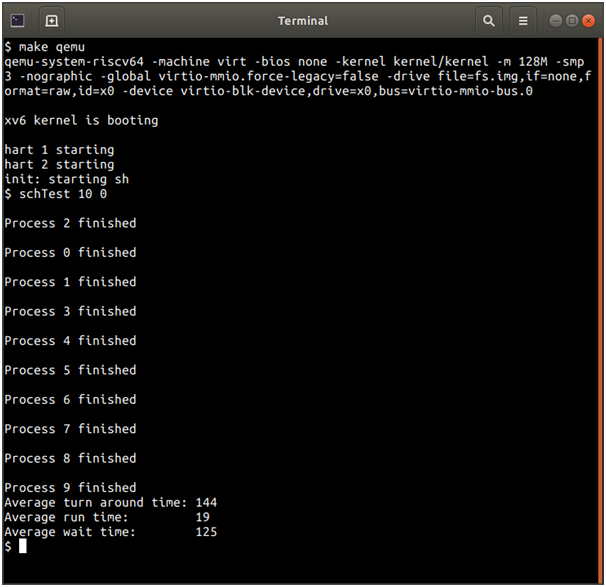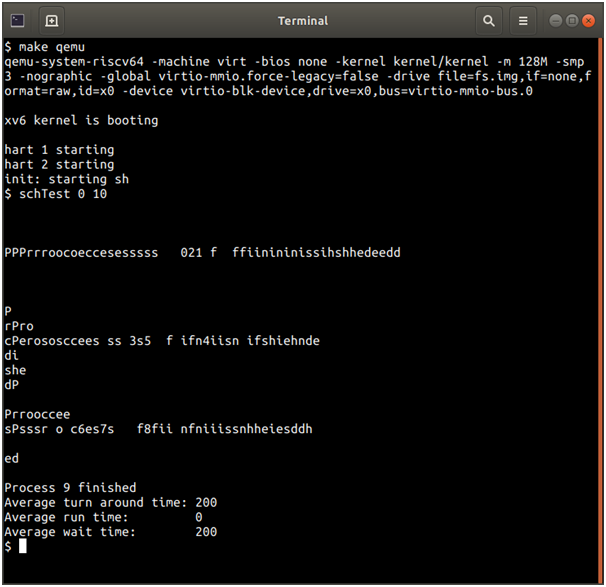Instructions
Objective
Write a C language assignment program to add first come first serve scheduler to XV6 OS.
Requirements and Specifications
First-Come-First-Server (FCFS) Scheduler
For this part of the project, we will modify the xv6 scheduler from strict round-robin to a firstcome-first-server (FCFS) scheduler. This will involve using the creation time entrying in the process control block that was added in part A. We will modify the scheduler function (kernel/proc.c). Scheduler will first have to find a RUNNABLE process with the earliest creation time. The process with the earliest arrival time is the process with the highest priority and therefor the process that is selected for execution. Only when the currently RUNNING process terminates is another process selected to RUN. It is suggested that you comment out the original round-robin scheduler code before adding your new version of the scheduler. This will allow you to switch back for testing in preparation for the final report.
Screenshots of output


Source Code
#include
#include
#include
#include
#include
#include